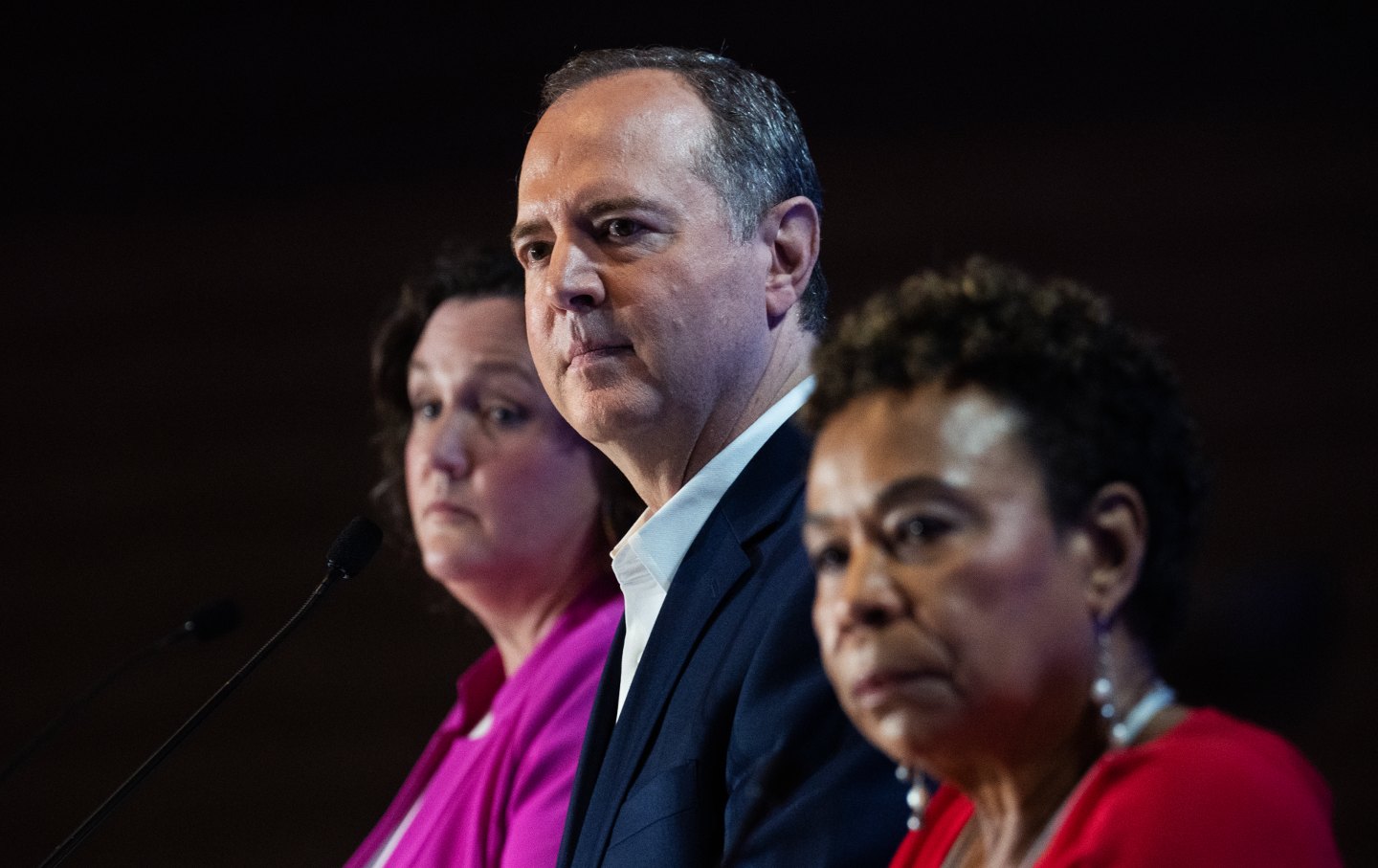Adam Schiff, a Democratic candidate for the US Senate in California, is running a TV ad that aims to boost a Republican opponent in the open primary on March 5. California has a unique primary system where candidates from all parties appear on the same ballot, and the top two vote-getters advance to the general election in November. Schiff, who is the front-runner in the primary, wants to avoid a scenario where two Democrats face off in November, as he believes it would be a tougher race. By highlighting his Republican opponent’s conservative record and support for Donald Trump, Schiff hopes to rally Republican support and secure his preferred opponent in the general election.
The jockeying for a two-party race in California’s Senate race is consequential for Democrats, especially progressive Democrats. A race between two Democrats would benefit the party, ensuring a Democrat takes the seat currently held by Dianne Feinstein. Schiff’s ad campaign makes it clear that he is angling for a two-party race, rather than a Democrat-versus-Democrat battle. This strategy has been used before by Democrats, such as Claire McCaskill in Missouri, who ran ads highlighting controversial Republican opponents in primary races to ensure a more favorable matchup in the general election.
The latest polling in California’s open primary shows Schiff at 25 percent, with his Democratic rivals Katie Porter and Barbara Lee at 15 percent and 7 percent, respectively. The undecided voters in the race are primarily Republicans and independents. Schiff’s advertising campaign, which raises the profile of his Republican opponent, Steve Garvey, could attract more Republican and Republican-leaning independent voters and potentially push Garvey over the top in the primary. Porter has criticized Schiff’s strategy, accusing him of furthering his own political career and boxing out qualified Democratic women candidates.
Overall, Schiff’s ad campaign is an attempt to secure his preferred opponent in the general election by boosting a Republican opponent in the open primary. While it is a savvy strategy, it has drawn criticism from some Democrats who argue that it undermines confidence in the political process and boosts MAGA Republicans aligned with Donald Trump. The outcome of the primary will determine whether California’s Senate race will be between two Democrats or a Democrat and a Republican, which has significant implications for the Democratic Party and progressive Democrats in particular.









